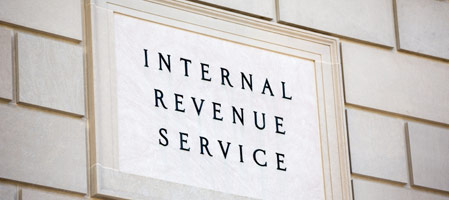IRS Guidance on Trust and Estate 2% Floor on Itemized Deductions

On May 8, 2014 the Treasury department released final regulations providing guidance regarding what deductions are subject to the trust and estate 2% floor on itemized deductions, including requiring the unbundling of trustee fees for tax years beginning on or after May 9, 2014. These regulations follow the U.S. Supreme Court’s decision in Knight v. Commissioner, 552 U.S. 181 (2008) in which the Court concluded that expenses incurred by a trust or estate which are not subject to the 2% floor limitation of §67 are those "which would not have been incurred if such property were not held in such trust or estate."
The Treasury Department and IRS believe the authority to unbundle rests with the authority to define expenses that “would not have been incurred if the property were not held in such trust or estate.” Consistent with the Knight decision, these final regulations interpret this statutory exception to the 2% floor to capture those expenses that would not commonly or customarily be incurred by an individual. In identifying these expenses, the Court specifically recognized that unbundling may be required in the case of investment advisory fees, the costs of which exceed the costs charged to an individual investor and which are incurred either because the investment advice is being rendered to a fiduciary or because of an unusual investment objective or the need for a specialized balancing of interests of various parties. The final regulations adopt this reasoning and, consistent with the Knight decision, provide that the portion of such a fee in excess of what would have been charged to an individual investor may be exempt from the 2-percent floor. Based upon the Knight decision and the authority to promulgate interpretative regulations, the Treasury Department and IRS believe that the final regulations are within the scope of regulatory authority and that they provide equitable tax treatment to similarly situated taxpayers.
The Treasury Department and IRS also believe that the limitations to the unbundling requirement in the regulations reduce administrative burdens by excluding from the unbundling requirement payments not related to investment advice or other 2% limited deductions. Where amounts are allocable to investment advice but are not traceable to separate payments, the final regulations retain the flexibility of allowing the use of any reasonable method to make the allocation to investment advice. The Treasury Department and the IRS believe that the availability of any reasonable method mitigates any administrative burden. However, to provide additional guidance, these final regulations provide non-exclusive factors to further reduce administrative burden for both taxpayers and the IRS.
In finalizing these regulations, the Treasury Department and the IRS reconsidered comments received in response to Notice 2008-32. Although some comments supported a percentage safe harbor, the percentages suggested assumed that all fees that are customarily incurred by individuals (and not just investment advisory fees) would be required to be unbundled. For this reason, the percentages that were suggested are not readily applied to the framework of the final regulations. The final regulations, however, permit the Treasury Department and the IRS to provide safe harbors in future published guidance.
Although many practitioners have been expecting these final regulations, they will undoubtedly add to the complexity of trust income tax returns. We can also expect to see this issue reviewed, and allocation methods challenged, on audit of fiduciary returns. Family offices can expect to see an impact on both trust and individual tax returns where the 2% limitation applies. For example, family office private trust companies now need to specify what expenses are subject to 2% and which are not, in the trustee fee charged to their trusts.
About John Collins
